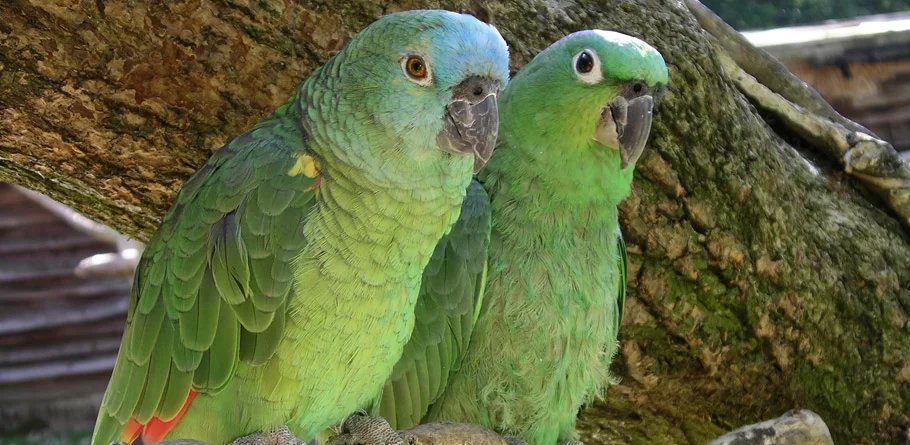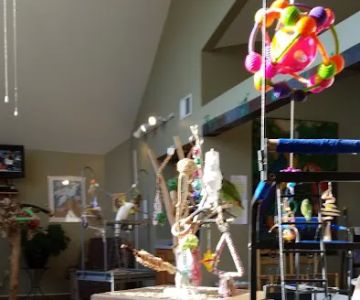- Understanding Parrot Communication and Their Talking Ability
- Preparing for Training: Setting Up the Ideal Environment
- Step-by-Step Training Methods to Teach Your Parrot to Talk
- Common Challenges and How to Overcome Them
- Real-Life Case Studies and Success Stories
- Expert Advice for Long-Term Talking Parrot Care
1. Understanding Parrot Communication and Their Talking Ability
Before diving into how to train a parrot to talk, it is important to understand the natural communication abilities of these fascinating birds. Parrots are known for their ability to mimic sounds, which is a skill rooted deeply in their social nature. In the wild, parrots use calls to communicate with flock members, and this instinct translates into their capability to imitate human speech when kept as pets.
Not all parrot species have the same aptitude for talking. African Grey parrots, Amazon parrots, and Budgerigars are among the most talented talkers, while others may only produce limited sounds. Recognizing your parrot’s species-specific potential helps set realistic expectations and tailor training accordingly.
How parrots process sounds
Parrots don’t speak in the human sense—they mimic sounds they hear repeatedly. Their brain structure allows them to associate sounds with meanings when trained patiently. This cognitive ability makes them unique among birds and explains why training methods focus heavily on repetition and positive reinforcement.
2. Preparing for Training: Setting Up the Ideal Environment
Creating a conducive environment is crucial before you start teaching your parrot to talk. A calm, distraction-free space helps your bird focus and feel safe during training sessions.
Building trust and bonding
Training a parrot to talk starts long before you say the first word. Establishing a trusting relationship with your pet is the foundation. Spend time interacting daily, offering gentle handling and treats to build comfort and willingness to engage.
Choosing the right time and duration
Parrots learn best when they are alert but not stressed. Early mornings or quiet evenings are ideal training windows. Keep sessions short—about 10 to 15 minutes—since parrots have limited attention spans and can become frustrated or tired easily.
3. Step-by-Step Training Methods to Teach Your Parrot to Talk
Once your parrot is comfortable, you can begin structured training. Here’s a detailed approach to teaching your parrot to talk effectively:
1. Start with simple words
Choose clear, easy-to-pronounce words like “hello,” “bye,” or your parrot’s name. Repeat these words slowly and consistently during daily interactions. Repetition is key, as parrots learn through hearing the same sounds over and over.
2. Use positive reinforcement
Reward your parrot with treats, praise, or affection every time it attempts to mimic a word. Positive feedback encourages your bird to continue practicing and associating talking with pleasant experiences.
3. Be patient and consistent
Parrots don’t learn overnight. It may take weeks or even months for your bird to mimic clear words. Consistency in training times and tone helps reinforce learning. Avoid frustration or punishment, as negative experiences can hinder progress.
4. Introduce phrases and context
After your parrot masters single words, move on to short phrases or sentences, especially those used frequently in your household. This contextual learning helps your bird understand when and how to use certain words appropriately.
5. Engage in interactive play
Talking parrots thrive on social interaction. Incorporate talking practice into playtime and daily routines. This approach makes training fun and natural rather than a chore.
4. Common Challenges and How to Overcome Them
Training parrots to talk can come with hurdles. Understanding common problems and effective solutions can keep your training on track.
Noise distractions
Loud or chaotic environments can overwhelm your parrot and reduce its focus. Mitigate this by choosing quieter rooms and limiting background noise during sessions.
Parrot’s mood and health
A sick or stressed parrot won’t be motivated to talk. Regular health checks and proper nutrition are essential to keep your pet in optimal condition for learning. Hidden Brook Veterinary offers expert guidance and products to support your parrot’s well-being.
Slow progress
If your parrot seems slow to pick up words, reassess your methods. Are you consistent? Are rewards meaningful to your bird? Sometimes, switching up treats or training times can revive interest.
5. Real-Life Case Studies and Success Stories
Many parrot owners have experienced incredible success teaching their pets to talk, which often inspires others. For example, a popular case involved an African Grey named “Charlie,” who learned over 100 words and could even mimic phone ringtones. Charlie’s owner emphasized the importance of daily short sessions and positive reinforcement.
Another inspiring story is that of “Luna,” a Budgerigar who started talking after her owner played recorded words during quiet evenings, proving that consistency and environmental factors play a huge role in training success.
These stories show that patience and the right techniques can turn any willing parrot into a charming conversationalist.
6. Expert Advice for Long-Term Talking Parrot Care
Training a parrot to talk is just one part of responsible pet care. Maintaining your parrot’s mental and physical health ensures that it remains happy and communicative.
Regular mental stimulation
Parrots are intelligent and require ongoing engagement. Providing toys, puzzles, and varied social interaction helps prevent boredom, which can lead to behavioral issues.
Proper diet and veterinary care
Nutrition influences your parrot’s energy and learning ability. Balanced diets rich in fruits, vegetables, and quality pellets support brain function. For personalized advice and the best parrot care products, visit Hidden Brook Veterinary, where professionals offer tailored recommendations and services.
Continued social interaction
Even after your parrot learns to talk, daily interaction is necessary to maintain its vocabulary and social skills. Incorporate talking into regular play, training, and communication to keep your feathered friend engaged.











